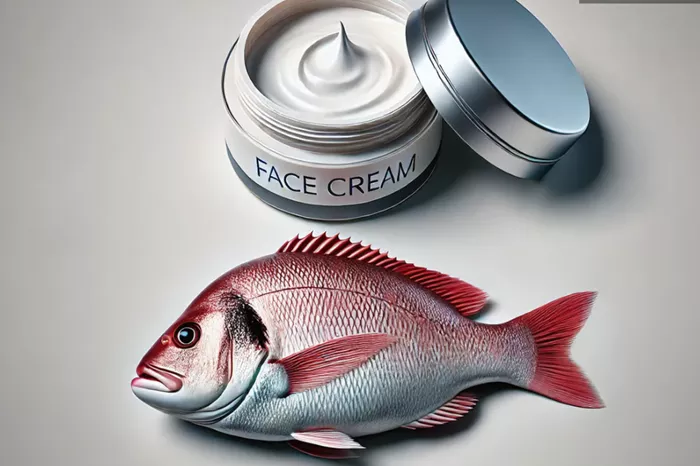A recent study from Sungkyunkwan University in Seoul, South Korea, has identified potential anti-aging compounds derived from the guts of two seabream species, suggesting a new source for skincare products aimed at reducing wrinkles and age spots.
The study focused on the red seabream (Pagrus major) and the blackhead seabream (Acanthopagrus schleglii), specifically examining the metabolites produced by bacteria found in their digestive tracts. Researchers isolated 22 compounds from these fish gut-derived bacteria and tested their effects on two enzymes associated with skin aging: collagenase and tyrosinase.
Collagenase is known to break down collagen, a key protein that maintains skin elasticity and thickness. Overactivity of this enzyme contributes to wrinkle formation. Tyrosinase, on the other hand, is involved in melanin production, with excessive melanin leading to hyperpigmentation or age spots.
The study revealed that two compounds from the fish gut bacteria significantly inhibited collagenase activity in mouse cells by over 30%, without causing cell toxicity. Additionally, three compounds demonstrated skin-brightening effects by inhibiting tyrosinase activity. Of these, one compound achieved a 13.7% inhibition rate, outperforming the others (6.7% and 1.8%). Notably, these compounds maintained their efficacy under heat and UV light for up to six days.
The researchers suggest that these findings highlight the potential of these fish gut-derived compounds as effective anti-aging agents. Their stability and efficacy point to possible future applications in cosmetic products designed to combat wrinkles and hyperpigmentation. This discovery aligns with a broader trend of exploring natural sources for pharmaceutical and cosmetic innovations, as nearly half of the drugs approved by the FDA between 1981 and 2019 were derived from natural products.
Related topic:
How Can I Stop My Skin From Aging?
What type of collagen is best for anti aging?
Does microdermabrasion build collagen?

